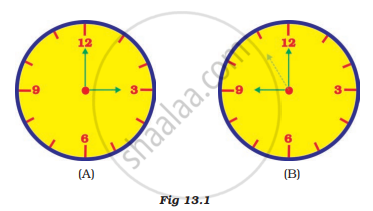Advertisements
Advertisements
Question
How do you measure the time period of a given pendulum? Why do you note the time for more than one oscillation?
Solution
Measurement of time period of a simple pendulum:
(i) To measure the time period of a simple pendulum, the bob is slightly displaced from its mean position and is then released. This gives a to and fro motion about the mean position to the pendulum.
(ii) The time 't' for 20 complete oscillations is measured with the help of a stopwatch.
(iii) Time period 'T' can be found by dividing 't' by 20.
To find the time period, the time for the number of oscillations more than 1 is noted because the least count of stopwatch is either 1 s or 0.5 s. It cannot record the time period in fractions such as 1.2 or 1.4 and so on.
APPEARS IN
RELATED QUESTIONS
How is the time period of a simple pendulum affected, if at all, in the following situations:
- The length is made four times.
- The acceleration due to gravity is reduced to one-fourth.
State how does the time period of a simple pendulum depend on (a) length of pendulum, (b) mass of bob, (c) amplitude of oscillation and (d) acceleration due to gravity.
A simple pendulum completes 40 oscillations in one minute. Find its (a) Frequency and (b) Time period.
The frequency of sound is measured in ______.
Explain how the frequency of oscillation is related to the length of a pendulum and the amplitude of its oscillation.
Two clocks A and B are shown in Figure 13.1. Clock A has an hour and a minute hand, whereas clock B has an hour hand, a minute hand as well as a second hand. Which of the following statement is correct for these clocks?

Give scientific reason.
In earlier times, people used to listen for the arrival of a distant train by putting their ear to the rail.
Give scientific reasons.
In earlier times, people used to listen for the arrival of a distant train by putting their ear to the rail.
Give scientific reason.
In earlier times, people used to listen for the arrival of a distant train by putting their ear to the rail.
You can perform an interesting activity when you visit a park to ride a swing. You will require a watch. Make the swing oscillate without anyone sitting on it. Find its time period in the same way as you did for the pendulum. Make sure that there are no jerks in the motion of the swing. Ask one of your friends to sit on the swing. Push it once and let it swing naturally. Again measure its time period. Repeat the activity with different persons sitting on the swing. Compare the time period of the swing measured in different cases. What conclusions do you draw from this activity?
